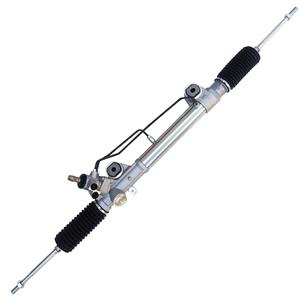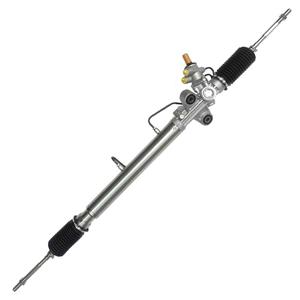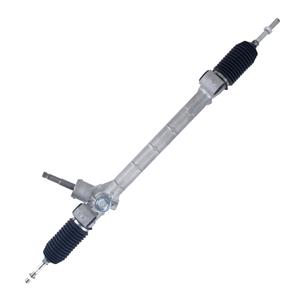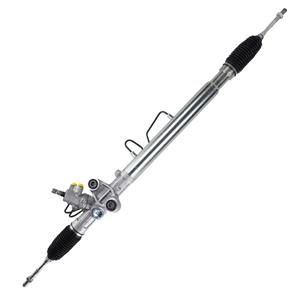What does it feel like when a power steering pump fails?
The power steering pump is one of the most critical components in modern vehicles. Its main function is to provide steering assistance through the hydraulic system, making it easier for the driver to turn the steering wheel. However, when the power steering pump fails, the driving experience will be significantly affected, which may not only cause inconvenience to the driver, but may even cause safety hazards.
This article will explore in detail the various manifestations of power steering pump failure to help car owners identify and take appropriate measures in a timely manner.
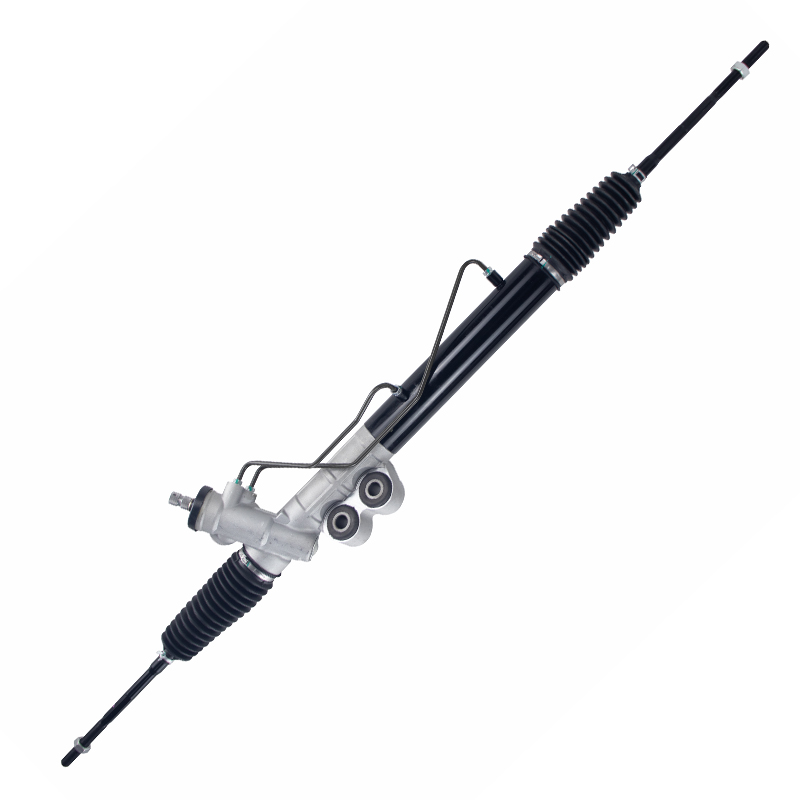
What is the basic principle of the power steering pump?
Before we get into the performance of the power steering pump failure, it is necessary to have a basic understanding of its working principle. The power steering pump is usually driven by a belt, and the pressure generated by the operation of the engine is used to deliver hydraulic oil to the steering rack or gearbox. The hydraulic oil flows under high pressure to provide assistance to the steering system, making steering wheel operation easy and comfortable.
The main task of the power steering pump is to keep the hydraulic pressure in the system stable, so that the driver can control the direction of the vehicle with slight steering wheel operation regardless of the driving conditions of the vehicle. If the pump fails, the hydraulic system cannot work properly, and the driver will immediately feel the change in steering operation.
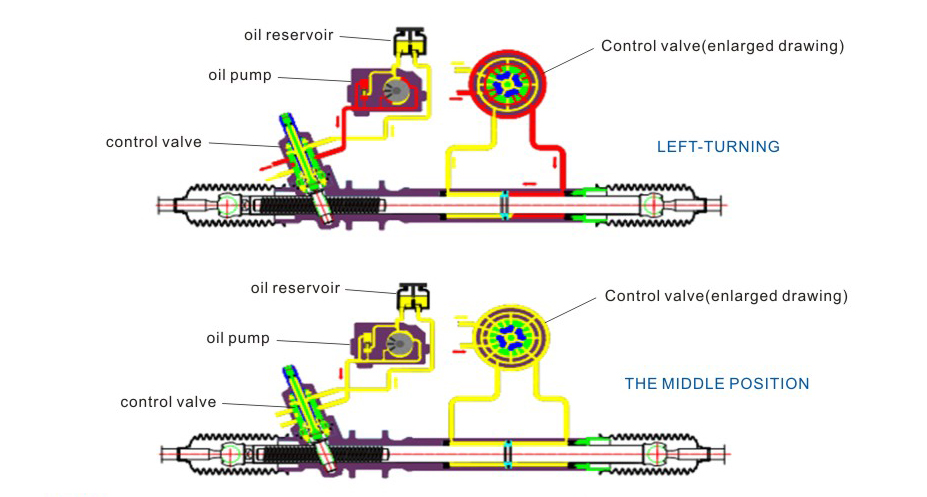
What does a failed power steering pump feel like?
When a power steering pump fails, the vehicle's steering system will exhibit a series of unusual symptoms that are usually obvious and easy to detect. Here are some common symptoms:
Heavy steering wheel
The most immediate sign of a failed power steering pump is that the steering wheel becomes unusually heavy. Because the hydraulic fluid is not providing enough assistance, the driver needs to apply more force when turning the steering wheel. This is especially noticeable when driving at low speeds or parking, because in these situations, the steering system needs more hydraulic assistance.
For drivers who are used to the light steering wheel operation, this change will be particularly prominent. Under normal circumstances, the steering wheel operation of even a small vehicle should be easy and comfortable, but when the pump fails, the driver may feel like he is driving an old-fashioned vehicle without power steering.
Steering system makes unusual noises
Another common symptom of a failed power steering pump is unusual noises when the steering wheel is operated. These noises are usually caused by wear on the internal components of the pump or poor flow of hydraulic fluid. Common sounds include buzzing, squealing, or whistling.
These noises are especially noticeable when turning the steering wheel, especially when the vehicle is just started or in cold weather. When the hydraulic system is under-pressurized, the pump struggles to maintain normal operation, which can cause more noise. As the problem worsens, the noise may become more sharp and persistent.
Hydraulic fluid leaks
If the power steering pump fails, hydraulic fluid leaks are also a common phenomenon. The pump seals may fail due to age or wear, causing hydraulic fluid to leak from the pump body or lines. Hydraulic fluid leaks not only cause the oil pressure in the system to drop, but may also have adverse effects on surrounding components.
Leaks can usually be identified by finding oil stains under the vehicle. If the steering fluid level is found to drop frequently and the fluid needs to be added continuously, this is likely a leak in the pump or other components. Hydraulic fluid is usually red or brown in color, so car owners should pay special attention when they find abnormal fluid.
Steering wheel return is not smooth
Under normal circumstances, when the driver releases the steering wheel, the steering wheel should automatically return to the neutral position, which is assisted by the hydraulic system. However, if the power steering pump fails, the steering wheel may become sluggish or insensitive to return. The driver may need to manually adjust the steering wheel back to the center position, especially after turning.
This phenomenon not only affects driving comfort, but may also pose a safety risk. The inability to quickly return the steering wheel means that the driver needs to pay extra attention to keep the vehicle straight, which is particularly dangerous when driving on the highway.
Hydraulic fluid deterioration or discoloration
A power steering pump failure may also be manifested by changes in the hydraulic fluid. Normal hydraulic fluid should be clear and odorless, but if the metal parts inside the pump are worn, metal chips may mix into the hydraulic fluid, making it dark or black in color.
In addition, the viscosity of the hydraulic fluid may also change, affecting the efficiency of the system. If the hydraulic fluid is found to be deteriorating or discolored, the power steering pump and the entire hydraulic system should be checked immediately, as this may be an early sign of damage to the pump's internal components.
Sudden steering system failure
In the most serious cases, a failure of the power steering pump may cause the entire steering system to suddenly fail. At this time, the steering wheel will become extremely difficult to control, and in some cases it will not turn at all. This situation is extremely dangerous, especially when the vehicle is driving at high speeds.
Sudden steering system failure usually indicates that the pump has completely stopped working properly and the hydraulic pressure in the system has dropped sharply. This situation requires immediate parking and professional repair to avoid further damage to the vehicle or accidents.
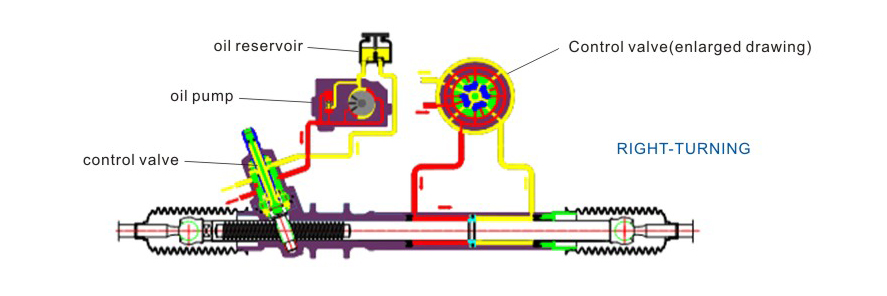
What are the causes of power steering pump failure?
Understanding the causes of power steering pump failure can help prevent problems and promptly repair them when early symptoms appear. Here are some common reasons that may cause power steering pump failure:
Insufficient or poor quality hydraulic fluid:
The power steering pump relies on the normal flow of hydraulic fluid to provide power assistance. If the hydraulic fluid is insufficient or the wrong fluid is used, the pump will not be able to maintain normal pressure, resulting in poor system performance or damage to the pump.
Aging or loose belt:
The power steering pump is usually driven by the engine belt. If the belt is aged, loose or broken, the pump will not operate properly, resulting in failure of steering assistance.
Wear of internal pump components:
Over time, the gears, vanes or bearings inside the power steering pump may fail due to normal wear. This situation is particularly common in high-mileage vehicles.
Failed seals:
The seals in the power steering system may age due to high temperature, high pressure or chemical corrosion. Failure of seals usually leads to hydraulic fluid leakage and poor pump performance.
Foreign matter or impurities entering the system:
If foreign matter or impurities enter the hydraulic system, it may block the hydraulic lines or damage the internal components of the pump, causing the pump to not work properly.
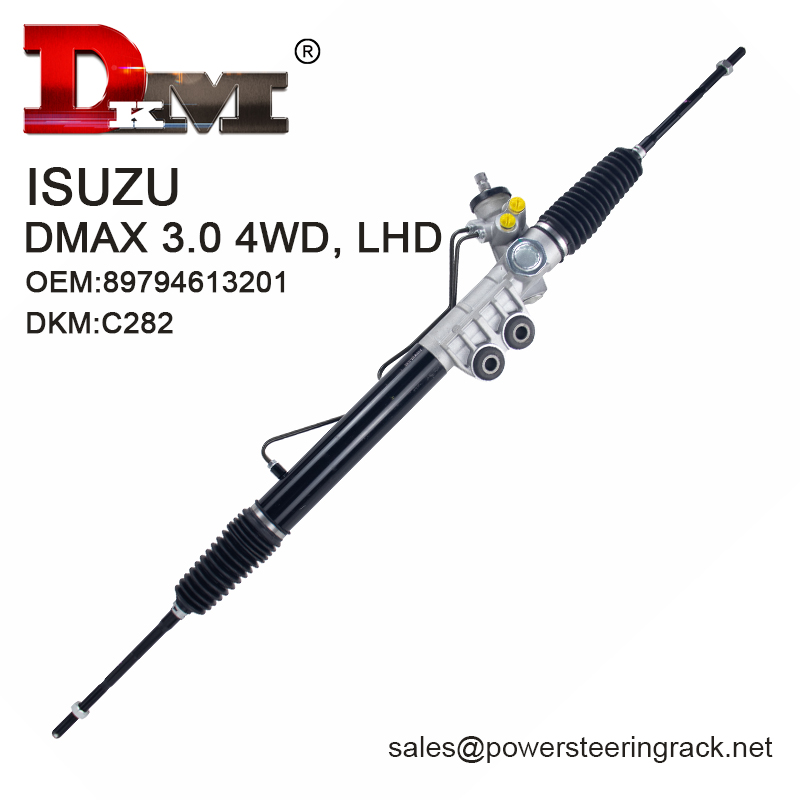
How to deal with power steering pump failure?
When the driver perceives that the power steering pump may fail, it is important to take appropriate countermeasures in time. First, Regularly checking the level, color and viscosity of the power steering fluid and ensuring that the belt and pump are in good condition can effectively prevent pump failure. Second, if abnormal phenomena such as steering wheel weight, abnormal noise, hydraulic fluid leakage or color change are found, the vehicle should be sent to a professional repair shop for inspection and repair as soon as possible.
If the power steering pump does fail, the damaged pump and related seals should be replaced. Using high-quality accessories and fluids can help extend the life of the system. In addition, try to avoid driving in extreme conditions for a long time, such as extremely cold weather or frequent low-speed steering operations, as these conditions increase the workload of the pump.
For buyers in the automotive sector, DKM provides high-performance power steering systems at unbeatable prices. Our products include gear rack steering systems tailored for vehicles from brands such as Honda, Volkswagen, and Hyundai. With a 20,000-square-meter factory and 280 CNC machines, DKM ensures premium quality for global markets. We offer flexible wholesale options, discounts, and custom designs to meet your specific needs. Contact us today for quotes and discover why DKM is the preferred choice for steering systems in the USA, Italy, Southeast Asia, and beyond.

